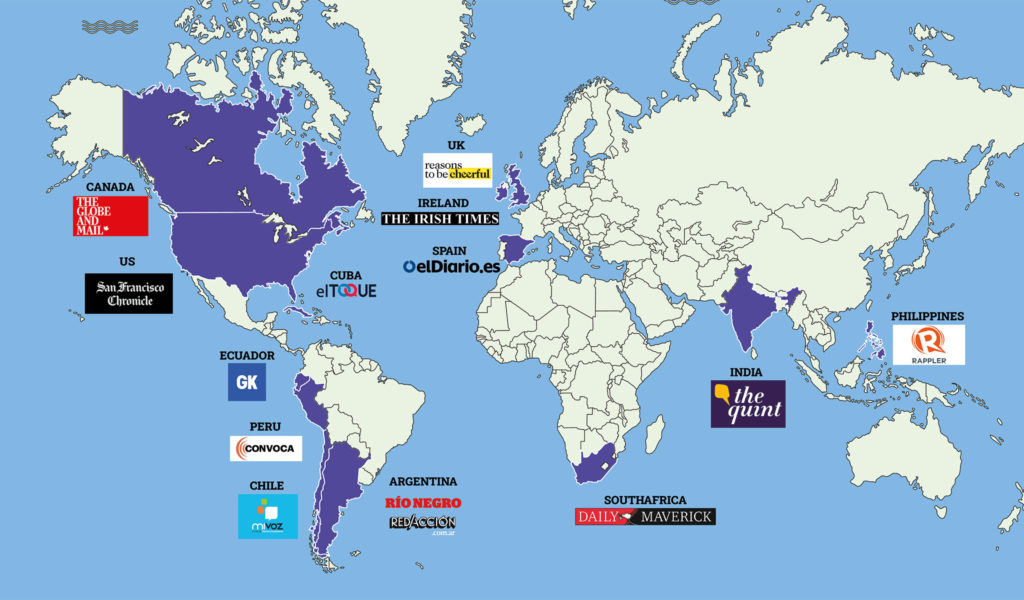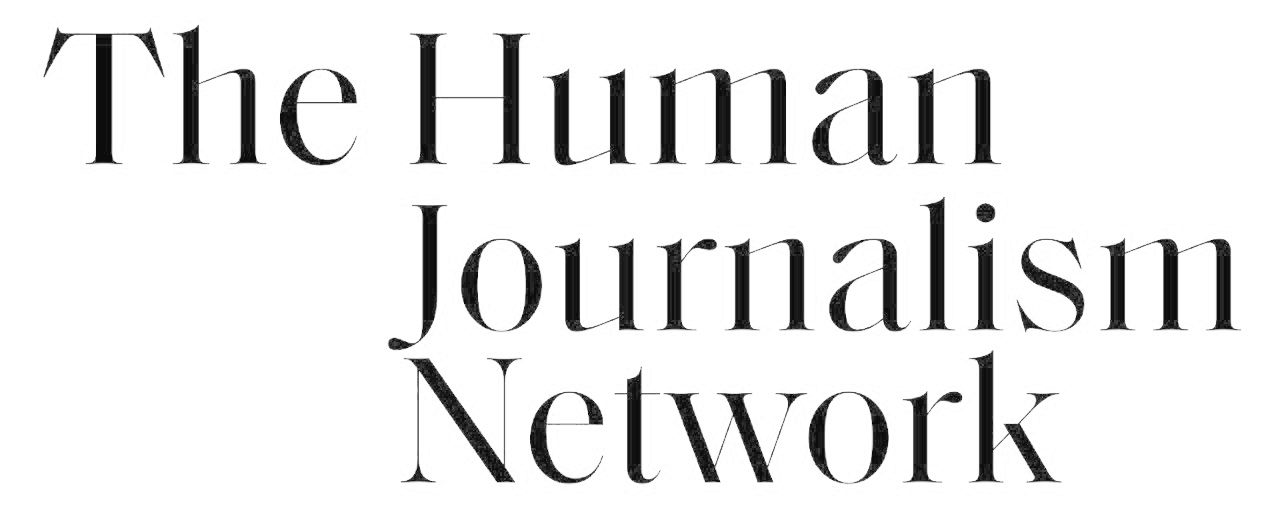The global content-sharing program, which this media outlet is a part of, surpassed 200 republished stories, that portray how people and communities face challenges around the climate crisis, inclusion, and gender equality, among other issues.
By Chani Guyot
Women in Raithal village in the Himalayas sew logs with fiber from coconut husks to repair erosion on a mountain; in San Francisco, a public program designs a savings model to ensure that 52,000 low-income students can access university education; in the Philippines, a coffee shop supports the families of victims of extrajudicial killings; in British Columbia, Canada, an indigenous community reintroduces traditional fire management practices to manage land vulnerable to wildfires.
These stories were part of the Human Journalism Network Global Edition 2023, a content exchange program involving media from the Americas, Europe, Africa, and Asia. Comprised of 14 media outlets that shared 25 news articles and more than 200 republishings, the Network amplified the reach of stories that portray how people and communities are tackling the most pressing social issues around social inclusion, the climate crisis, gender equality, and education, among other topics.

Ana Lidia García, a member of the editorial board of the Cuban news media El Toque, believes that “the stories of the Human Journalism Network encourage us to look beyond our geographic and intellectual limits, to seek inspiration in the solutions that others have found to similar challenges and to face them creatively through journalism.” Maeve Connolly, the deputy digital editor of the Irish News, agrees on the value of the global perspective offered by stories shared and republished through the network.
The Network was born to amplify the reach of journalistic stories with a constructive outlook, as a way to combat the extreme negativity that sometimes taints the journalistic gaze. According to the latest edition of the Digital News Report by the Reuters Institute at Oxford University, 36% of the digital audience avoids the news, as the main reason, because of its negativity. Using more than 90,000 interviews in 46 markets covering half the world’s population, the study shows how this phenomenon undermines audience trust in news and media.

Jillian Green, Managing Editor of Daily Maverick (South Africa) believes that ”it’s great to be part of a network that promotes journalism for good, especially when news coverage ―locally and globally― can be so negative.” Many of the stories shared revealed positive environmental initiatives: how former illegal fishermen in Masbate, Philippines, became guardians of the sea and managed to restore the flora and fauna of a protected marine area, or how a village in the Indian state of Rajasthan adopted an unusual ritual (planting 111 trees for every daughter born) to reduce the number of child marriages and floods.
One of the core values of the Human Journalism Network is diversity. María Ramírez, deputy editor of elDiario.es (Spain) explains: “The Network is meaningful because it provides a variety of voices on issues that are common all over the world. Even if they are topics we have already reported on, it is interesting to see the approaches of different media and communities far away from our own.” For Isabela Ponce, co-founder and editorial director of GK (Ecuador), “the stories on the network allow us to have a global look at stories that show hidden realities but are of great interest to our audience. It’s also beneficial that some of our stories are translated and republished in media outlets worldwide”.
Miriam Grace Go, Managing Editor of Rappler (Philippines) adds that “Human Journalism Network stories put a human face on community problems and showcase people’s efforts to address and solve them.”
The following media participated in the Global 2023 edition: Convoca (Peru), Daily Maverick (South Africa), elDiario.es (Spain), El Toque (Cuba), GK (Ecuador), The Globe and Mail (Canada), Mi Voz (Chile), Rappler (Philippines), Reasons to be cheerful (UK), RED/ACCIÓN (Argentina), Río Negro (Argentina), San Francisco Chronicle (USA), The Irish News (Ireland) and The Quint (India).
The aggregated audience of all participating media, according to Similar Web, exceeds 100 million unique monthly users. The Network, an initiative promoted by the Argentinean media RED/ACCIÓN, invited each media outlet to share two stories. A team of editors and translators then edited the texts to make them relevant to a global audience, before sharing the final version that was republished by the rest of the media.

Summarising the experience, Merita Ilo, weekend editor of the Globe and Mail (Canada) explains: “The network was a great opportunity for our readers to see how people in other countries face the same challenges we face here in Canada. Whether it was stories about climate change, education, or domestic violence, the common thread was that, in the face of adversity, people come together to find solutions and bring about change. The fact that some of the stories came from countries off the beaten path for foreign correspondents also enriched our news coverage”.
The Human Journalism Network is supported by ICFJ (International Center for Journalists). Maggie Farley, Senior Director of Innovation and ICFJ Knight Fellowships, says: “The Human Journalism Network stories are complex and inspiring. It’s the kind of news people want to hear more about instead of turning away from because they connect and inspire us at a time when we need it. The Network has connected people and journalists worldwide to make news engaging and uplifting.”
Intending to continue to expand the reach of more human journalism stories, the Network plans to launch its next edition in the last quarter of 2023.
Chani Guyot is the publisher of the Human Journalism Network.
